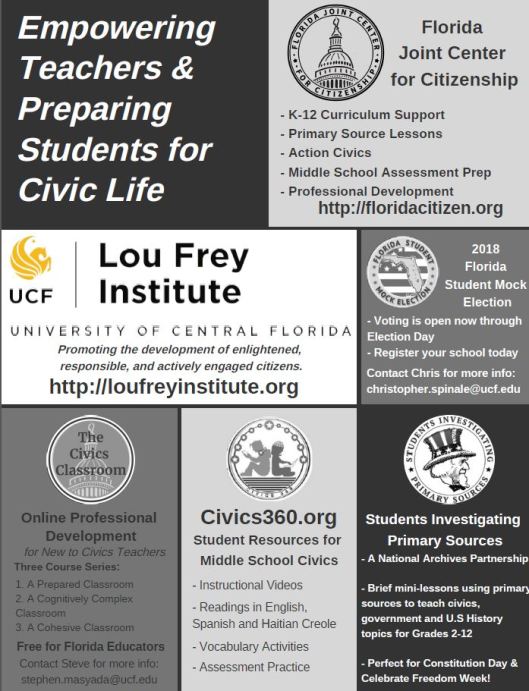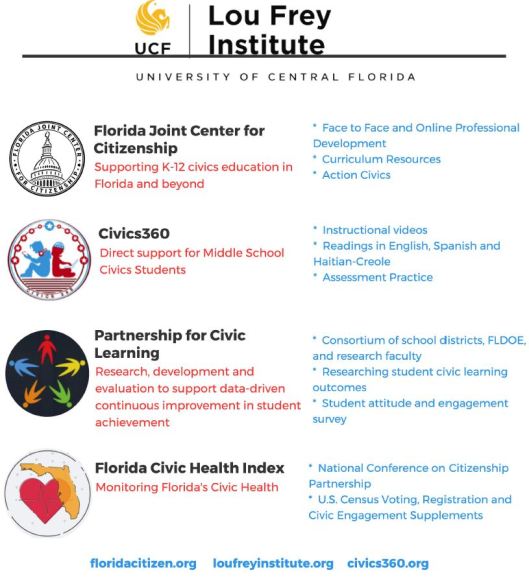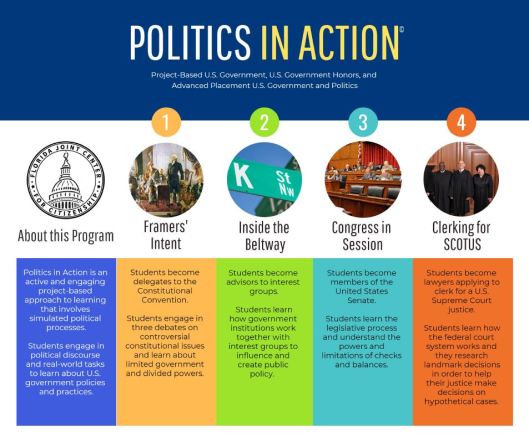Friends and colleagues,
The Florida Legislature has had busy session! This post is intended to just loop you in on where legislation that could impact social studies stands after the most recent session. Please note that we here at FJCC/LFI take no political position on any of this. This is intended to be informative, with some consideration of potential impact. We encourage you to visit the state Senate’s Bill Tracker for more information.
HB 741–anti-Semitism is to be treated in the same manner as racial discrimination. It also defines anti-Semitism and includes criticizing Israeli actions without context or unreasonably within that definition. This is something to keep in mind as we think about instruction on the Holocaust or racism and discrimination in general, as well as when discussing current events with our kids.
HB 7071-removes the financial literacy standards from economics and creates a separate fin lit hs elective. It is unclear what the impact of this will be. On the one hand, it creates an actual financial literacy course for the first time, and all districts and high schools must offer it. However, that course is intended to be an elective; with the financial literacy removed from the mandatory economics course, how many students will actualy be getting financial literacy? Just something to think about; it’s a good first step on a necessary path, but what else can we do?
HB 807– requires a comprehensive review and potential revision of K-12 civic education benchmarks and related resources. The legislation identifies the Florida Joint Center for Citizenship, iCivics, the Bill of Rights Institute, the Gilder Lehrman Institute of American History, ConSource, and Hillsdale College as the lead review organizations, with other stakeholders and organizations able to contribute. At this point, we don’t know how they will implement this, but it is VERY likely to affect civics in Florida. Ironically, Florida is recognized nationally for its strong civic education approach. It requires a review of both instructional resources and the test item specifications, so will be significant!
SB7030- implements the recommendations of the MSD high school public safety commission and allows districts to authorize select teachers to have access to firearms on campus. It is, not surprisingly, pretty divisive legislation.
SB 1342 makes it easier for kids to take part in dual enrollment, lowering the GPA to 2.5 and prohibits limitations on student participation. The goal here is to address college costs and provide a greater degree of choice for parents and students.
Executive Order 19-32 requires a review and revision of math and ELA standards to remove any and all vestiges of ‘common core’ and orders new attention on preparing kids with ‘American civics’, among other things. The Florida Council for the Social Studies, as well as the Florida Joint Center for Citizenship, are some of the stakeholder organizations asked to provide feedback on the revised standards. You can take part in the review process as well by registering on the EdCredible platform.
So that’s where things stand as of May of 2019. Things could of course change again. But certainly social studies in this state will be significantly impacted by some of the legislation awaiting a signature!



























